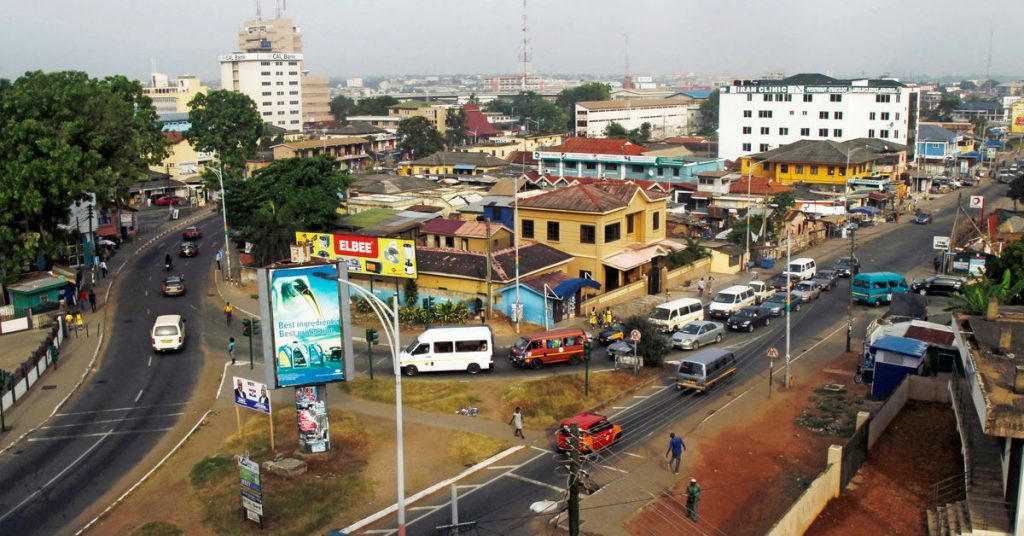
ACCRA (Reuters) – Ghana suspended payments on most of its external debt on Monday, effectively defaulting as the country grapples with its huge balance of payments deficit.
The Finance Ministry said it would not service debt including Eurobonds, commercial loans and most bilateral loans, calling the decision a “temporary emergency measure”, while some bondholders criticized the lack of clarity in the decision.
The Finance Ministry said the government was “ready to engage in discussions with all its external creditors to make Ghana’s debt sustainable”.
The suspension of debt payments reflects the precarious state of the economy, which last week led the government to reach a $3 billion staff-level deal with the International Monetary Fund.
Ghana had already announced a domestic debt swap program and said an offshore restructuring was being negotiated with creditors. The International Monetary Fund has said a comprehensive debt restructuring is a condition for its support.
The country has been struggling to refinance its debt since the beginning of the year after a credit rating downgrade by several credit rating agencies over concerns that it would be unable to issue new international bonds.
This has led to the incursion of Ghana’s debt into the stricken region. Its public debt amounted to 467.4 billion Ghanaian cedis ($55 billion, according to Refinitiv Eikon data) in September, of which 42% was domestic.
It had a balance of payments deficit of more than $3.4 billion in September, down from a surplus of $1.6 billion at the same time last year.
While 70% to 100% of government revenue currently goes to servicing the debt, inflation in the country soared to as much as 50% in November.
Ghana is experiencing what some say is its worst economic crisis in a generation. Last month, more than 1,000 protesters demonstrated across the capital, Accra, calling for the president’s resignation and denouncing deals with the International Monetary Fund as fuel and food prices soared.
Its international reserves totaled about $6.6 billion at the end of September, the equivalent of less than three months of import coverage. That’s down from about $9.7 billion at the end of last year.
The government said the suspension would not cover multilateral debt payments, new debt due after December 19, or debt related to some short-term trade facilities.
“Don’t come out of the blue”
Holders of Ghanaian international bonds confirmed in an emailed statement late Monday the official launch of the creditors’ committee which aims to facilitate the “orderly and comprehensive resolution” of the country’s debt challenges.
The creditors’ committee said any good faith negotiations would need to avoid unilateral measures and require the timely and detailed sharing of economic and financial information between international bondholders, the government and the International Monetary Fund.
In its statement, the group said the steering committee was made up of Abrdn, Amundi, BlackRock, Greylock, and Ninety One.
Catherine Exum, who co-heads sovereign research at Gramercy, was bullish on debt restructuring, noting that it should be easier for creditors than other emerging market restructurings.
“It is more forthcoming than the likes of Sri Lanka and Zambia, regarding China not having too much debt,” Exum said on Friday in remarks anticipating the offshore restructuring.
One bondholder, who asked not to be named, said the lack of detail in the announcement could be a concern for investors.
Tradeweb data showed that Ghanaian offshore bonds, which are trading at a very distressing level of 29-41 cents to the dollar, fell with the 2034 bond losing more than 3 cents.
However, some investors said that the suspension of foreign debt repayment was expected.
“It goes along with Ghana entering talks about restructuring with many debt holders, so they won’t come out of thin air,” said Rob Drekoningen, co-head of emerging market debt at Neuberger Berman, which owns some Ghanaian Eurobonds.
Ghana paid a coupon on Dec. 16 owed on a $2,049 Eurobond, according to a person familiar with the matter.
It was not immediately clear if the suspension of debt service would include a $1 billion bond for 2030 with a $400 million guarantee from the World Bank.
“We will not comment on the details of any particular bond or debt maturing at this time, but … we are fully engaging all stakeholders,” a Ministry of Finance spokesperson told Reuters.
($1 = 8.5000 Ghanaian cedis)
(Reporting by Christian Accorelli and Cooper Invin) Additional reporting by Rachel Savage, Mark Jones and Gorgelina de Rosario. Writing by Rachel Savage and Cooper Envin; Editing by Karen Struecker, Ed Osmond, Aaron Coyoor, and Aurora Ellis
Our standards: Thomson Reuters Trust Principles.

“Travel specialist. Typical social media scholar. Friend of animals everywhere. Freelance zombie ninja. Twitter buff.”





More Stories
Taiwan is preparing to face strong Typhoon Kung-ri
Israel orders residents of Baalbek, eastern Lebanon, to evacuate
Zelensky: North Korean forces are pushing the war with Russia “beyond the borders”